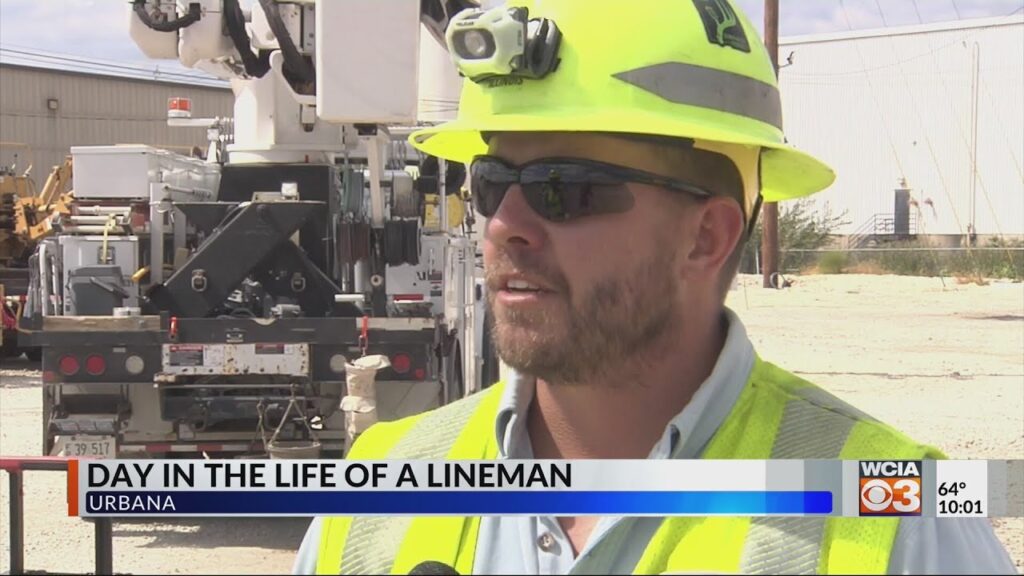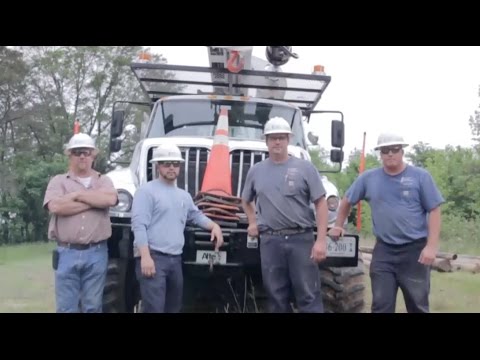Ever wondered what a typical day looks like for a lineman? Imagine a day filled with excitement, challenges, and the satisfaction of keeping the lights on for countless households. From climbing towering utility poles to braving unpredictable weather conditions, this article takes you on a captivating journey through the life of a lineman. Discover the unique experiences and responsibilities that come with this vital profession, as we provide an insider’s perspective on the demanding but rewarding world of a lineman.
Morning Routine
Waking up early
As a lineman, your day starts bright and early. Waking up early allows you to make the most out of your day and be prepared for the physically demanding tasks ahead. By giving yourself enough time in the morning, you can establish a calm and peaceful start to the day, helping you to stay focused and energized throughout your work.
Getting ready for the day
After getting out of bed, it’s important to go through your morning routine to prepare for the day ahead. This includes washing up, brushing your teeth, and getting dressed in your work gear. Taking a few moments to care for yourself and go through your morning hygiene routine will not only help you feel refreshed but also ensure that you are presentable for the job.
Having breakfast
Breakfast is often considered the most important meal of the day, and as a lineman, this rings especially true. Fueling your body with a healthy and balanced meal in the morning provides you with the energy required to power through the physically demanding tasks that lie ahead. A nutritious breakfast, consisting of foods like whole grains, fruits, and protein, can help you stay focused and maintain high levels of productivity throughout the day.
Preparing for Work
Reviewing work orders
Before heading out to the worksite, it’s crucial to review the work orders you have received. This allows you to familiarize yourself with the tasks and objectives for the day. By understanding the scope of work, you can prepare yourself mentally and gather any necessary tools or equipment required to complete the job efficiently.
Checking equipment and tools
As a lineman, your equipment and tools are essential to your work. Before leaving for the worksite, it’s important to thoroughly inspect and ensure that all your equipment is in proper working condition. From safety gear like helmets and gloves to specialized tools like wire cutters and wrenches, checking your equipment beforehand saves you time and ensures that you have everything you need to perform your duties effectively.
Loading the truck
Once you have reviewed the work orders and checked your equipment, it’s time to load your truck. This involves carefully placing all the necessary tools, equipment, and materials required for the day into your truck. Properly organizing and securing everything ensures that you are ready to respond to any situation that may arise while on the job.
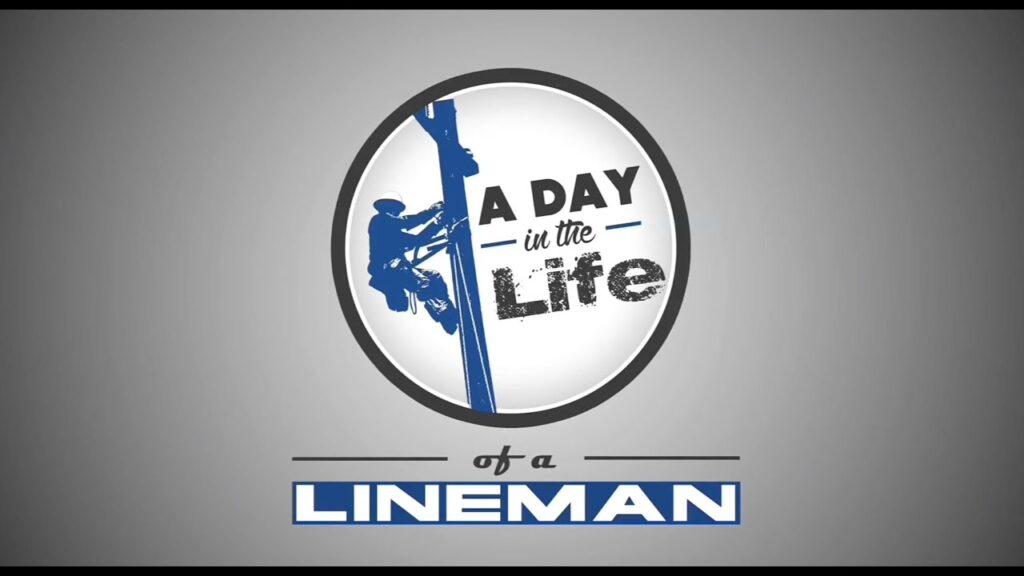
On-Site Operations
Traveling to the worksite
After preparing for the day, it’s time to hit the road and make your way to the worksite. Depending on the location, you may have a short or long commute. Regardless of the distance, it’s important to plan your route ahead of time to avoid any delays or traffic congestion. Arriving at the worksite on time allows you to start your tasks promptly and maintain a smooth workflow throughout the day.
Setting up safety measures
Safety is of utmost importance in the line of work of a lineman. Once at the worksite, one of your first priorities is to set up safety measures. This includes erecting proper signage, barricades, and cones to ensure that the work area is clearly marked and protected. Taking the time to establish a safe working environment not only safeguards you and your team but also minimizes the risk of accidents or injuries.
Inspecting power lines
With safety measures in place, it’s time to begin inspecting the power lines. This involves carefully examining the lines and their components to identify any faults or areas in need of repair. You rely on your keen eye and attention to detail to visually inspect the lines, looking for signs of wear and tear, damage, or any other issues that may affect their functionality. Identifying potential problems early on helps prevent further damage and ensures the reliability of the power grid.
Power Line Maintenance
Identifying and repairing faults
During the inspection process, you may come across faults or issues with the power lines. It is your responsibility as a lineman to identify these faults and determine the best course of action for repairs. This may involve troubleshooting electrical systems, examining transformers, or testing voltage levels. Once the fault is identified, you utilize your skills and knowledge to repair the lines and restore them to their optimal functioning state.
Replacing damaged equipment
In addition to repairing faults in the power lines, you may also come across damaged equipment during your maintenance tasks. This could involve replacing faulty transformers, insulators, or other components that are critical to the power grid. As a lineman, you are trained in handling and installing new equipment, ensuring that it is properly connected and aligned to maintain the integrity of the power supply.
Trimming trees near power lines
Another important aspect of power line maintenance is ensuring that trees near the lines are properly trimmed. Overgrown branches can pose a serious risk of causing power outages or even fires. As a lineman, you may be involved in trimming or pruning trees that encroach upon power lines. This task requires precision, as you must carefully trim the branches while ensuring that the power lines remain undamaged.
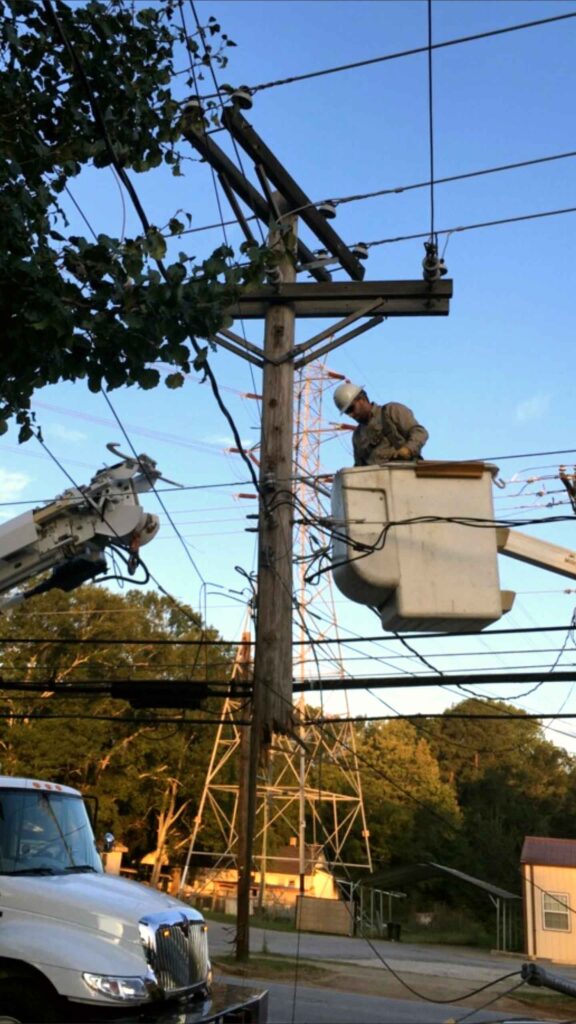
Troubleshooting and Repairs
Responding to service outages
Service outages can occur unexpectedly, and as a lineman, you play a crucial role in responding to and resolving these issues. When a service outage is reported, you are dispatched to the affected location to investigate and rectify the problem. Whether it’s a damaged power line, a faulty transformer, or an equipment failure, your expertise allows you to quickly isolate the issue and initiate the necessary repairs.
Isolating faults
When faced with a fault in the power grid, your troubleshooting skills come into play. With precision and care, you work to isolate the specific area or component that is causing the issue. This involves analyzing electrical systems, conducting voltage tests, and using specialized equipment to pinpoint the fault. By accurately isolating the fault, you can streamline the repair process and minimize downtime for customers.
Testing and repairing equipment
Once the fault is isolated, you need to test and repair the affected equipment. This may involve replacing damaged components, repairing electrical connections, or recalibrating systems. As a lineman, you are trained in the intricacies of electrical systems and have the expertise to safely and effectively test and repair equipment. Thorough testing ensures that the equipment is functioning optimally, guaranteeing reliable power supply to customers.
Working at Heights
Climbing utility poles
Working at heights is a significant component of a lineman’s job. You are often required to climb utility poles to access power lines and carry out repairs or maintenance tasks. Climbing utility poles requires physical strength, agility, and a steady hand. You rely on safety gear like harnesses and hooks to ensure your stability and protection while ascending and descending the poles.
Installing and repairing power lines
Once up on the utility pole, you may be tasked with installing or repairing power lines. This involves utilizing specialized tools to connect and secure the lines, ensuring that they are safely and securely in place. Your expertise in handling power lines enables you to carry out these tasks efficiently and effectively, maintaining the integrity and functionality of the power grid.
Inspecting and maintaining equipment
Working at heights also includes inspecting and maintaining equipment that is stationed on utility poles, such as transformers or insulators. This necessitates a thorough examination of the equipment, looking for signs of damage, wear, or malfunction. If any issues are detected, you take the necessary steps to repair or replace the equipment, ensuring that it operates at peak performance and reliability.
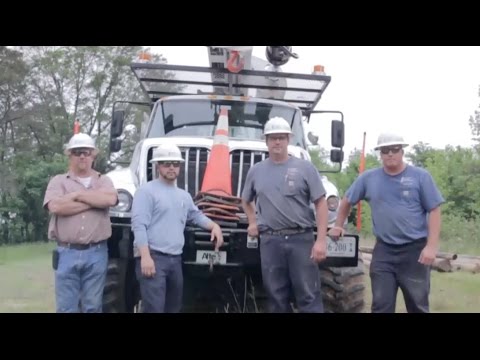
Collaboration and Coordination
Communication with team members
As a lineman, you rarely work alone. Strong communication and collaboration with your team members are essential for a smooth and efficient workflow. Throughout the day, you communicate with your team to coordinate tasks, share important information, and provide updates on the progress of your work. This constant communication fosters a sense of camaraderie and ensures that everyone is on the same page, working towards a common goal.
Coordinating with other departments
In addition to your immediate team, you may also need to coordinate with other departments, such as engineering or customer service. This collaboration allows for a holistic approach to problem-solving and ensures that the necessary resources and expertise are available to resolve any issues that may arise. Effective coordination with other departments enhances efficiency and customer satisfaction.
Working with supervisors
Supervisors play a critical role in overseeing and managing lineman operations. You collaborate closely with your supervisors to receive guidance, clarify tasks, and seek assistance when required. Your supervisors provide valuable insights, experience, and support to help you navigate any challenges that may arise during your work. Open and regular communication with your supervisors fosters a positive working relationship and enables you to perform your duties effectively.
Emergency Response
Assisting in emergencies
As a lineman, you are often called upon to assist in emergencies, such as natural disasters or accidents. During these critical situations, you may be involved in restoring damaged power lines, helping in rescue efforts, or providing temporary power solutions. Your ability to remain calm under pressure, coupled with your expertise in power line operations, allows you to contribute to emergency response efforts effectively.
Restoring power during disasters
During disasters, restoring power quickly is of utmost importance. You work diligently to repair damaged power lines, replace equipment, and restore electricity to affected areas. This involves working in challenging conditions, often in adverse weather or hazardous environments. Your dedication and expertise in power line maintenance contribute to the recovery process, providing much-needed comfort and support to affected communities.
Responding to severe weather conditions
Severe weather conditions, such as storms or hurricanes, can cause significant damage to power lines. As a lineman, you are at the forefront of responding to these weather-related emergencies. You work tirelessly to restore power and ensure the safety of the public. This may involve working in extreme weather conditions, making quick repairs, and coordinating efforts with other emergency response teams.
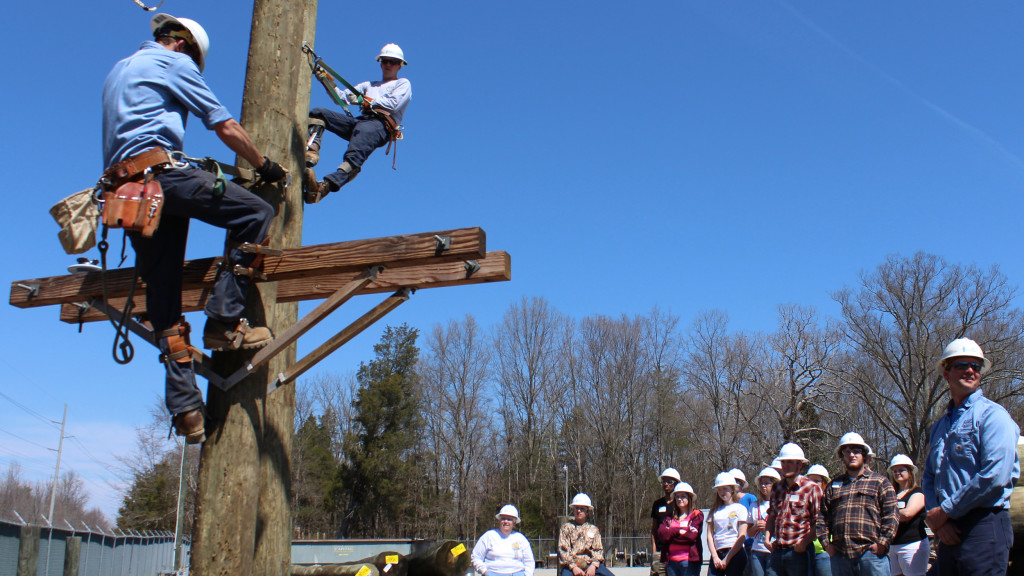
Continuous Learning and Certification
Attending training programs
To stay updated with the latest industry practices and advancements, linemen frequently participate in training programs. These programs provide opportunities to enhance skills, learn new techniques, and expand knowledge in power line operations. By actively engaging in continuous learning, linemen can adapt to changing technology and industry standards, ensuring that they are well-prepared to tackle any challenges that may arise.
Staying updated with industry standards
The power industry is constantly evolving, with new safety regulations and technological advancements being introduced regularly. As a lineman, it is crucial to stay updated with these industry standards to ensure adherence to safety protocols and best practices. Regularly reviewing industry publications, attending conferences, and engaging with industry professionals helps you stay informed and maintain the highest level of professionalism in your work.
Obtaining relevant certifications
Certifications play a vital role in the career progression of a lineman. Achieving relevant certifications demonstrates your expertise and proficiency in specific areas of power line maintenance. Certifications may cover topics such as electrical safety, equipment operation, or advanced troubleshooting techniques. By obtaining these certifications, you not only enhance your professional credibility but also open doors to greater opportunities within the industry.
Closing Tasks
Cleaning and organizing work area
Before wrapping up your day, it’s essential to clean and organize your work area. This includes properly disposing of any waste, gathering all tools and equipment, and organizing them for the next day. By maintaining a clean and orderly work environment, you create a safer and more efficient workspace for yourself and your colleagues.
Returning equipment to the base
After completing your tasks, it’s time to return any borrowed or shared equipment to the base. This ensures that the tools are available for others to use and prevents loss or damage. Properly storing and securing the equipment also allows for easy access and efficient organization when needed for future jobs.
Logging completed tasks and reporting
The final part of your day involves logging and reporting your completed tasks. This includes documenting the work you have done, noting any repairs or replacements made, and reporting any outstanding issues that need attention. Accurate logging and reporting provide valuable information for tracking work progress, analyzing performance, and maintaining records for future reference.
In conclusion, a typical day as a lineman involves a variety of tasks, ranging from inspecting power lines to repairing faults and responding to emergencies. By following a structured routine, maintaining a strong focus on safety, and continuously learning and improving, linemen play a critical role in ensuring a reliable and efficient power supply for communities.
